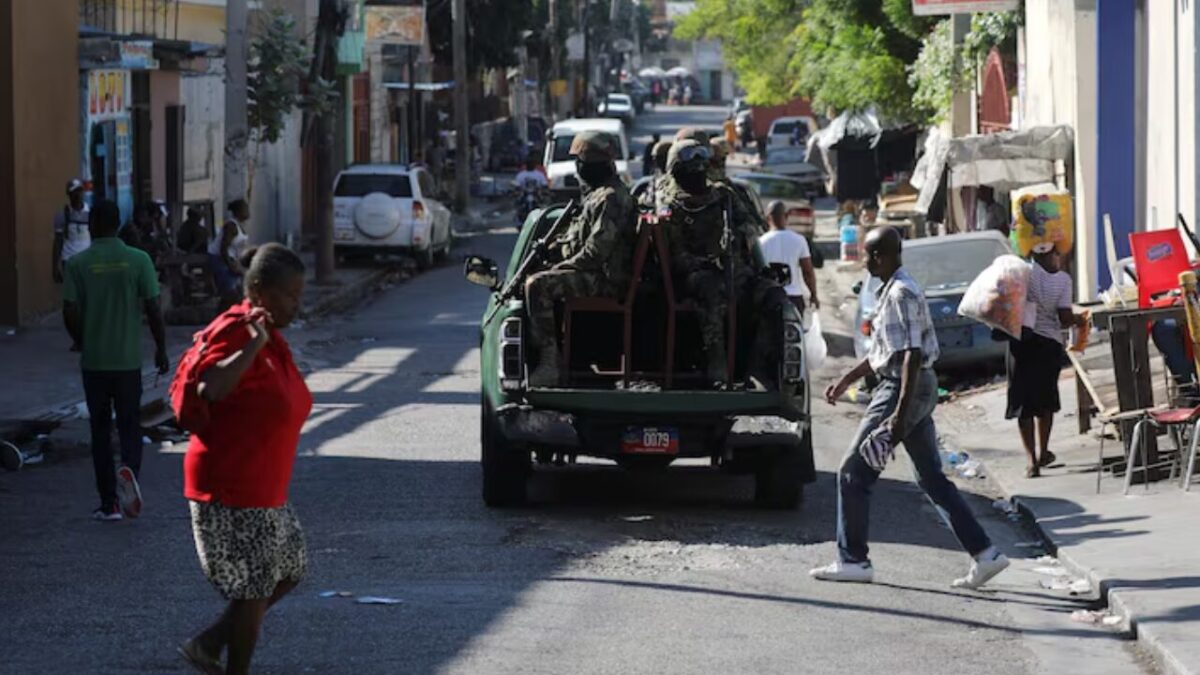Over 1,500 killed in Haiti in four months, UN warns mission is overwhelmed

According to the United Nations Integrated Office in Haiti (BINUH), armed violence, human rights abuses and mass displacement have escalated sharply, overwhelming the MSS Mission.
Haiti’s security crisis has deepened in the past four months, with more than 1,500 people killed and hundreds more injured, reevaling the growing challenge facing the Kenyan-led Multinational Security Support (MSS) Mission.
The United States has shut down its embassy in the capital, Port-au-Prince, after a deadly gunfire exchange in Tabarre, and issued a travel advisory urging its citizens to avoid the Caribbean nation. American officials have also been directed to suspend all non-diplomatic travel to Haiti.
According to the United Nations Integrated Office in Haiti (BINUH), armed violence, human rights abuses and mass displacement have escalated sharply, overwhelming the MSS Mission.
Acting Head of BINUH and UN Resident and Humanitarian Coordinator Ulrika Richardson said the violence is spreading across key regions.
“Gang attacks in the Artibonite and Centre departments, and in the capital, continue to cause serious human rights violations and exacerbate an already dire humanitarian crisis, leading to massive population displacement with dramatic consequences for women and children in particular,” said Richardson.
She noted that 609 people were injured in armed violence during the period, most from Port-au-Prince, while Artibonite and Centre also recorded large numbers of displaced residents. In addition, there were at least 185 kidnappings and 628 reported cases of sexual violence.
BINUH spokesperson Mathias Gillmann reported that criminal groups were behind more than 24 per cent of deaths and injuries recorded during the quarter.
“Gang members continued to resort to murders, gang rapes and kidnappings to maintain their control over populations living in areas under their influence. Cases of sexual slavery, sexual exploitation, and child trafficking and exploitation were also documented,” he said.
The report also found that 64 per cent of deaths or injuries occurred during security operations targeting criminal groups, with over a third linked to strikes using explosive drones.
Gillmann criticised some of these operations for contributing to civilian casualties.
Security forces themselves have suffered losses, with some officers killed in combat. The Kenyan government has confirmed the death of officer Samuel Tompoi Kaetuai, who was shot in February, and says another officer, Benedict Kuria, remains unaccounted for.
The recent gunfire near the US embassy was believed to be retaliation for the arrest of former senator Nenel Cassy, accused of supporting gangs, conspiracy against state security, and complicity in murder.
In April, Haitian authorities set up two specialised judicial units to handle mass crimes, including sexual violence and financial crimes. Criminal trials have since been held in several jurisdictions, and police have bolstered their specialised units to combat sexual violence.
The UN has urged the Haitian government, with international backing, to intensify the fight against gangs while respecting human rights and rules on the use of force.
For Kenyan officers and other MSS personnel, the worsening violence is a growing threat, compounded by persistent shortages in equipment.
June marked one year since Kenya deployed officers to Haiti, a period that has seen the highest civilian death toll and displacement levels in three years.
The MSS mission, which is not a UN peacekeeping operation, is funded by donors, but contributions have been limited. Its mandate expires on October 2 unless the UN Security Council extends it.
Kenya is lobbying for a renewal and more funding, arguing that the mission’s objectives remain far from achieved.
